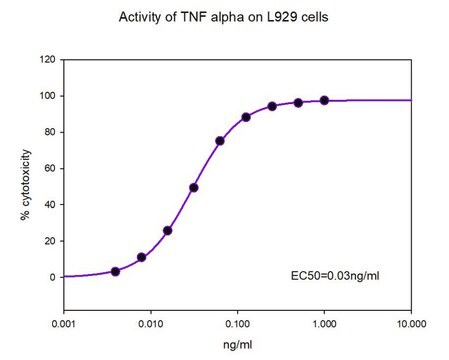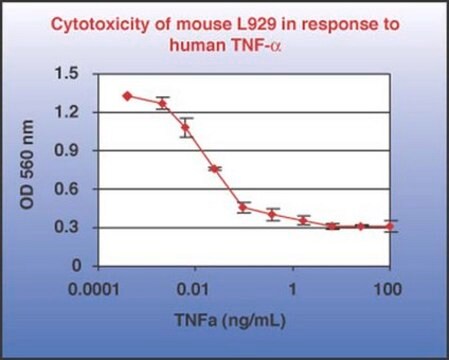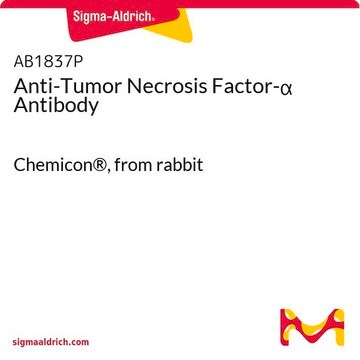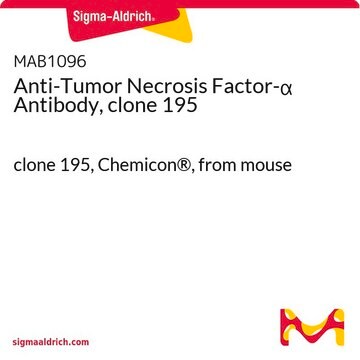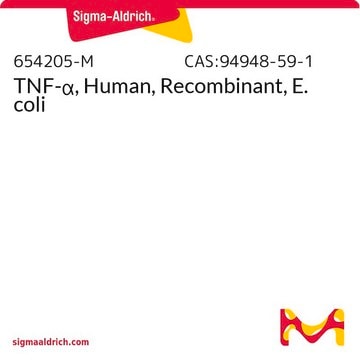AB2148P
Anti-Tumor Necrosis Factor-α Antibody
Chemicon®, from rabbit
Synonym(s):
TNF-alpha
About This Item
Recommended Products
biological source
rabbit
Quality Level
antibody form
affinity purified immunoglobulin
antibody product type
primary antibodies
clone
polyclonal
purified by
affinity chromatography
species reactivity
mouse
manufacturer/tradename
Chemicon®
technique(s)
ELISA: suitable
neutralization: suitable
western blot: suitable
NCBI accession no.
UniProt accession no.
shipped in
dry ice
target post-translational modification
unmodified
Gene Information
human ... TNF(7124)
Specificity
Immunogen
Application
Western Blot: A concentration of 0.1-0.2 μg/mL of AB2148P is required to detect 1.5-3.0 ng/lane of mTNF-alpha, under either reducing or non-reducing conditions.
Neutralization: To yield one-half maximal inhibition [ND50] of the biological activity of mTNF-a (0.50 ng/ml), a concentration of 0.010-0.015 μg/ml of AB2148P is required.
Optimal working dilutions must be determined by the end user
Linkage
Physical form
Legal Information
Not finding the right product?
Try our Product Selector Tool.
Storage Class Code
13 - Non Combustible Solids
WGK
WGK 3
Flash Point(F)
Not applicable
Flash Point(C)
Not applicable
Regulatory Listings
Regulatory Listings are mainly provided for chemical products. Only limited information can be provided here for non-chemical products. No entry means none of the components are listed. It is the user’s obligation to ensure the safe and legal use of the product.
JAN Code
AB2148P:
Certificates of Analysis (COA)
Search for Certificates of Analysis (COA) by entering the products Lot/Batch Number. Lot and Batch Numbers can be found on a product’s label following the words ‘Lot’ or ‘Batch’.
Already Own This Product?
Find documentation for the products that you have recently purchased in the Document Library.
Our team of scientists has experience in all areas of research including Life Science, Material Science, Chemical Synthesis, Chromatography, Analytical and many others.
Contact Technical Service